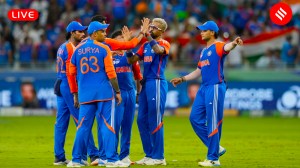King’s man in Delhi, says Nepal wants more time
He is not Nepal’s national security advisor but Sharad Chandra Shah is to King Gyanendra what Tariq Aziz is to President Musharraf. An ...

He is not Nepal’s national security advisor but Sharad Chandra Shah is to King Gyanendra what Tariq Aziz is to President Musharraf. An aide of the monarch, Shah is in New Delhi to read the Indian leadership’s mood on Nepal and to convey that Gyanendra is not against democracy but needs more time because his first priority is to tackle the Maoists.
Shah, who landed here yesterday, made his first call this evening when he visited Jaswant Singh’s house to meet BJP leaders L K Advani, Jaswant Singh, former NSA Brajesh Mishra and Yashwant Sinha.
The King’s emissary will also be meeting key figures of the UPA government and officials.
This includes a luncheon meeting with Foreign Secretary Shyam Saran on Sunday.
If Shah thought that the BJP leadership would sing a different tune on the King’s coup, he was in for a surprise.
Advani and his colleagues told Shah that their party was for constitutional monarchy and multi-party democracy. The BJP leaders made it plain that they did not approve of the King’s February 1 action and wanted him to restore multi-party democracy.
A close relative of Nepal’s Foreign Minister Ramesh Nath Pandey was present with Shah at the meeting with BJP leaders.
Shah was a powerful figure during the pre-1990 Panchayat rule era and was part of a clique called bhumigat giroha (underground group).
He was the target of public ire during the 1990 pro-democracy movement and had been living in India and Thailand until two years ago.
Appointed advisor to former Nepal PMs Lokendra Bahadhur Chand and Sher Bahadhur Deuba, Shah is now vice-chairman of a high level committee on Information Technology.
He is extremely close to the King and is being used as an emissary ever since the King went in for direct rule.
He has kept in touch with Indian Ambassador in Kathmandu Shiv Shankar Mukherjee and Shyam Saran.
While Shah is expected to curry support for the monarch with the UPA government, it’s learnt that Delhi is in no mood to oblige.
On its part, New Delhi will ask Shah to tell the King that Indian joint ventures in Nepal are not troubled and restrictions on United Telecom Limited are lifted.
Indian joint ventures in Nepal constitute 10 per cent of Nepal’s GDP with ITC’s Surya Nepal alone—it has a turnover of 400 crore Nepali rupees—accounting for over one per cent of Nepal’s GDP.
Photos



- 01
- 02
- 03
- 04
- 05




























